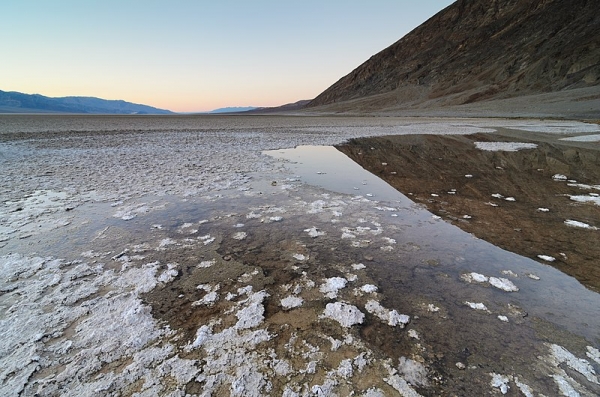In August 2023, Hurricane Hilary made landfall in northern Mexico and soaked the Baja California peninsula, Southern California, and Nevada with rain. In California’s Death Valley, flash floods damaged roads and other infrastructure, causing the national park to close for nearly two months. When visitors returned in mid-October, they witnessed an infrequent sight in this notoriously hot and dry place: a shallow ephemeral lake stretching for miles in Badwater Basin.
This series of images reveals hydrologic changes in the desert basin relative to August’s heavy rain. The images are false color to emphasize the presence of water, which appears in shades of blue. On July 5, 2023 (left), the basin contains relatively little moisture prior to flooding. In contrast, the August 22 image (middle) shows the aftermath of a record-setting rainy day. Both were acquired by the OLI (Operational Land Imager) sensor on Landsat 8 using a band combination of 6-5-3.
On August 20, a weather station at Furnace Creek (north of this scene) recorded 2.2 inches (56 millimeters) of rain. The amount exceeds the area’s average annual rainfall total of 2.15 inches (55 millimeters), according to the National Park Service, and it breaks Death Valley’s previous single-day rainfall record of 1.7 inches (43 millimeters) set in August 2022.
Read more at NASA Earth Observatory
Photo Credit: King of Hearts via Wikimedia Commons


